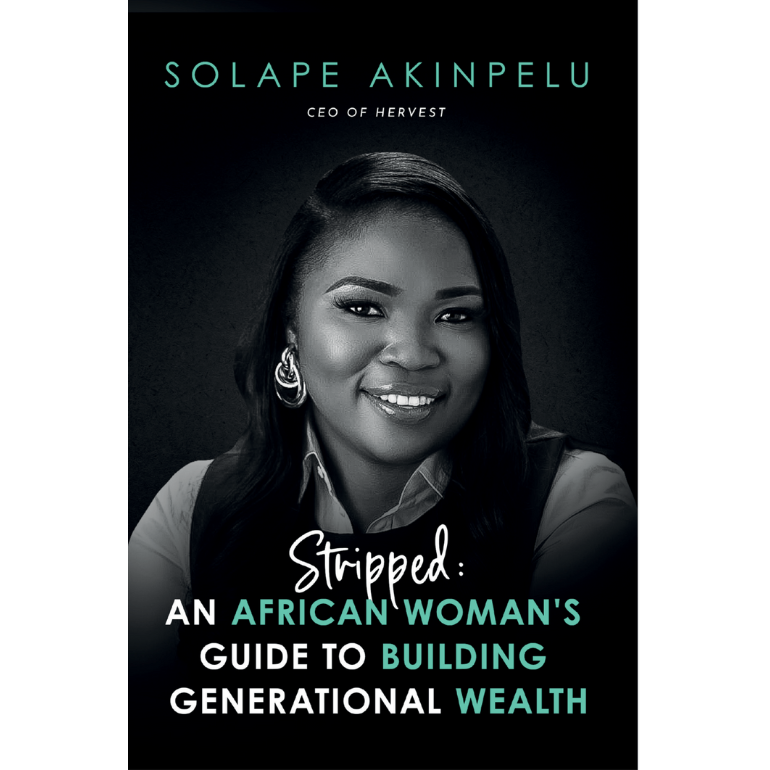I recall being at a meeting some time ago, and one of the speakers, let’s call her Rhoda, shared her unforgettable “financial grass to grace story”. She said she earned over two million Naira in monthly income, but before the month’s end, she could not account for what the money had been spent on. This reality check became the turning point in her finances. After a hard look at her money habits, one thing was to blame: financial Illiteracy.
Rhoda’s lack of financial goals, impulsive buying, no budget, zero saving and no investing had cost her more than she bargained for. Now, she is in a better place financially and shares her story as a piece of resounding advice to women willing to listen.
When Rhoda made this astounding confession, I opened my mouth in gobe! Two million naira! Gone, how?
But to be honest, a large number of us can relate to Rhoda’s experience. We say only if we earned more, all our financial woes would be over. Then fortune eventually smiles on our faces, and we are back to square one.
The truth is we spend more time talking about how to make money and less time on how to manage it. And to be honest, the task of managing money as a woman is harder than we think.
Women of all ages and backgrounds struggle with unpaid care, unequal pay, life interruptions, and many sociocultural factors hindering our financial stability.
While we must consistently fight to smash these inequalities, it is essential to equip ourselves with the right skills to make informed financial decisions.
This is the core attribute of financial literacy, and in no particular order, I have shared ten ways to awaken your financial genius as a woman.
- Read financial books: Investment in knowledge yields the best returns, and a great way to achieve this is by reading books. Financial books, especially best sellers, open the doors to interactions with savvy financial experts through a step-by-step, transformational approach.

Some of the best financial books that have aided me along my growth journey include Stripped by Solape Akinpelu, Rich Dad, Poor Dad by Robert Kiyosaki, Clever Girl Finance; Ditch Debt, Save Money and Build Real Wealth by Bola Sokunbi; Think and Grow Rich by Napoleon Hill, Smart Money Woman by Arese Ugwu, 21 Days Financial Fast: Your Path to Financial Peace and Freedom by Michelle Singletary, Broke Millennial: Stop Scraping By and Get Your Financial Life Together by Erin Lowry, and a host of others.
I recommend reading at least one financial book every month, and when you do, make sure you apply the lessons learned to your financial situation.
Financial podcasts, magazines, and publications are equally important resources for improving your financial literacy.
2. Forgive your past money mistakes: Many women are held back by the poor financial decisions made in their past. They are unable to move forward because they judge themselves from these mistakes.
The truth is no one is exempt from money mistakes. We have all done the lavish spending and not taken care to save and invest towards our future. The time has come to move forward and make the right decisions.
Look for what can be done to fix your errors and begin to implement them. You can also draw invaluable strength from women who have walked the path of financial ignorance to freedom. Your money mindset can only operate effectively in optimism, so embrace healing.
3. Budgeting: This financial term is often used but less applied. Without the right financial planning, a budget provides us, we are bound to overspend and live without financial goals. A budget shows us what we can or can’t afford.
Taking charge of our finances as women means prioritizing our finances. The 50:30:20% is an easy budgeting method that can help you manage your money. The rule of thumb is to divide your monthly income into three categories: 50% for your bills, rents, needs, and expenses/ 30% for wants like occasional splurges and 20% for savings and investing.
Remember, a need is something you cannot live without, e.g., health care and food. On the other hand, Wants are things we desire but are not essential for survival, e.g., A new wristwatch.
4. Save Yourself by Saving: The first rule to attain financial freedom is to pay yourself first by saving. No matter what you earn, put aside something to save. Also, emphasize saving for retirement and keeping an emergency fund should an unforeseen event arise.
Set financial goals and save towards them. Make saving a lifestyle. If you find it hard to save, automating your savings before seeing it will make you accountable. The HerVest app has multiple savings plans to help you achieve your goals. You can save individually on the Personal Savings Plan or with a group on HerVest CLIQ and earn up to 14% annual interest. The choice is
5. Familiarize yourself with financial jargon: Do not be thrown off balance by high-sounding words like compounding, capital markets, deficit, and ETIs. They are just words. Start from the basics and understand what these terms truly mean in your own words. Take advantage of resources on the internet and blog articles to educate yourself financially.
Challenge yourself to learn a financial word every day, and in less than six months, you will be a financially confident woman. The business news wouldn’t sound so boring anymore, and this will offer you a road map to avoid money mistakes such as Ponzi and other get-rich-quick schemes. You can also visit the HerVest Learn to browse our extensive wealth of financial resources.
6. Breakaway from consumer mentality: A big challenge for a majority of women in achieving financial stability is the consumerism mindset we are ingrained with. We buy till our homes become a space for chaos and clutter.
How many times do we take a short trip to the market to buy a few things and come out with our shopping carts filled with unplanned groceries? Nowadays, the internet has even amplified our buying culture with ads and free deliveries targeted at us from every corner. If we want to be financially wise, we need to grow up and stay organized with our spending.
To break away from the purchase mindset, take a 21-day financial fast and live minimalistic as Michelle Singletary advises in her bestseller, 21 Days of Financial Fast: Your Path to Financial Peace and Freedom. In this time period, you will only buy things you need. You will reduce your consumption and material possessions. Donate, sell or toss out things you don’t need. Use it to get your financial house in order and break your overly consuming desire.
7. Attend webinars: The pandemic transformed the world into a dot, giving easy access to power-packed seminars, webinars, and highly sought-after industry leaders. In fact, browsing through the internet, there is a quick stumble on an upcoming webinar. Take advantage of these opportunities. Utilize these webinars to expand your network and ask questions where necessary.
HerVest is a great place to start. We offer free monthly webinars to educate women on budgeting, investing, asset building, and economic literacy to achieve their professional and life goals. If you want to build multiple businesses, check out our last webinar.
8. Play Smart, not Safe: There’s a common saying that women love to play it safe rather than take risks when it comes to investing. Well, it’s important to note that while saving is essential and less risky than investing, the rate of inflation tends to override the interest rate on a savings account. Over time, the money from a savings account would diminish in value, buying less and less.
Take, for example, N500 last year would buy fewer things now because of the rising cost of goods and services in Nigeria. But when it comes to investing, money left over the long term could recover any loss in value and even grow exponentially through compounded returns.
You can speak to a financial advisor, read up more on the subject, and opt for relatively non-volatile vehicles like bonds, mutual funds, and agritech investments. Playing it smart means thinking long-term when it comes to your money and arming yourself with the right knowledge to make it work for you.
9. Have a financial role model: I was reading through a financial brochure years back, and something unusual caught my attention. A section of the article read: Where are the female financial role models? And 45% of the poll said there weren’t any good financial role models. 1 in 3 chose JK Rowlings, the author of the best-selling novel series Harry Potter, and the remaining answers were unbelievable.
I ask you today, who is your financial role model? Learning at the feet of women who make sound financial decisions will help you through your financial journey;
10. Digital products and apps: Digital products and apps like HerVest make it easy and quick for women to save, perform fund transfers and invest to meet their financial goals while earning competitive returns.
With the convenience and zero maintenance fees on HerVest, you can stay on track with your financial situation, plan and make informed decisions.
Women cannot level the gender playing field without money. Investing in financial education empowers us to be financially confident and make economically sound decisions.


